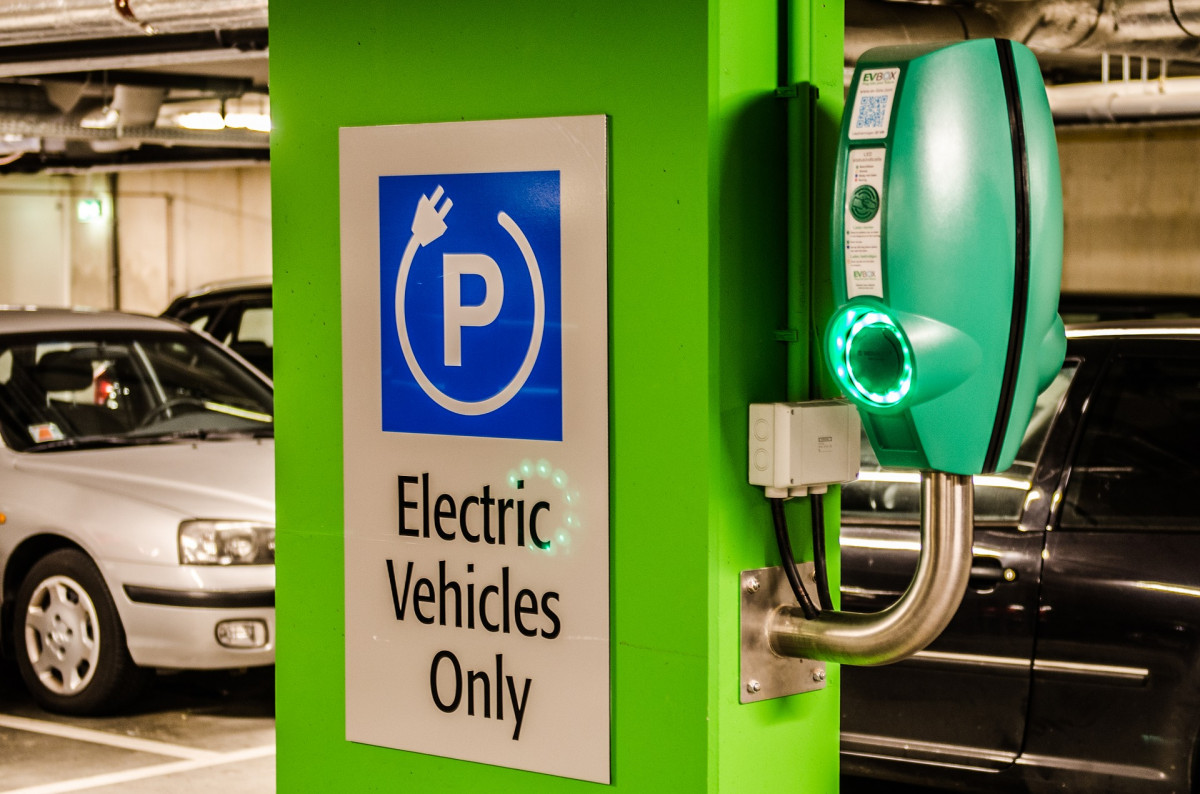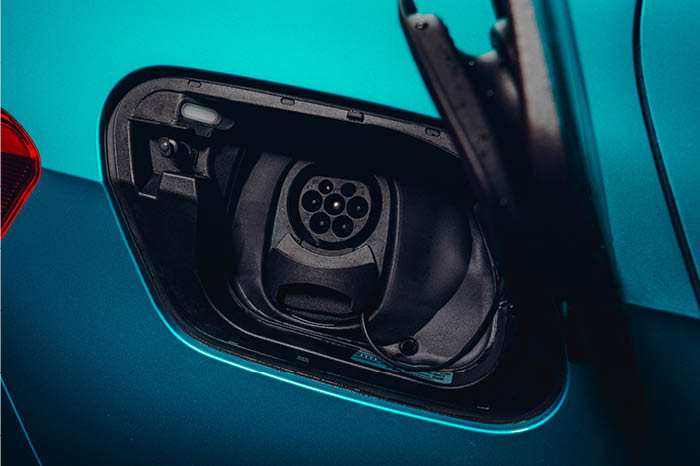With different connectors, compatibility and speeds, charging your electric vehicle may, at first, seem complex. But you can quickly untangle yourself from the charging cables with our handy guide.
First up, how?
There are three ways to charge your EV – at home, at work, or at a public charging point. Below we set out the differences between them all:
- At Work: Workplace charging points are handy for commuters. The government’s Workplace Charging Scheme can help if your workplace doesn’t have a charge point installed yet. This scheme contributes towards the up-front costs of the purchase and installation of charge points, to a value of £300 per socket and a maximum of 20 sockets.
- Home: Charging at home overnight will provide all the daily range the average driver will need. Using a regular domestic 3-pin socket (typically a maximum of 2.3kW) will do the job but installing a home EV charger (usually 7kW) is a much better option, at three times the speed. Installing a home charger costs around £800, and government grants can cover up to £350 of this.
- In Public: The network of public chargers is growing at an amazing rate. At the time of writing, there are 25,122 charging points across more than 15,000 locations in the UK, and this number is rising daily. They can be found at service stations, car parks, supermarkets, outside restaurants or even just roadside. Access to most networks is granted via an app or membership card, and available pay-as-you-go or subscription.

One area where it does get slightly complicated is connectors. There isn’t yet a universal connector for all EVs and the different chargers. Each charger type has its own set of connectors depending on whether it’s low or high power, and AC or DC. In addition to the slow 3-pin connector, Slow and Fast chargers each have Type 1, Type 2 and Commando (all of which are AC). Rapid chargers also have Type 2 AC, as well as CCS and CHAdeMO, which are both DC. The last thing you want is to get to a charging station, only to find it’s not compatible with your car, but knowing your car’s charging input and having the handy ZapMap app on hand will remove the chances of this.
Now, how much?
To fully charge an electric car at home costs about £5, and to charge to 80% at a rapid public charger it costs an average of £7 to £10. Of course, this varies depending on the location, tariff, energy cost, battery capacity and charging speed, but regardless, it is far cheaper than the fuel costs for an ICE-powered car. We provide some examples below, where we look at different charging speeds.
And finally, how long?
This depends on the size of the battery and the type of charger, defined by power in kW. While we could reach a point where recharging takes scarcely longer than filling up with fuel, for now, charging time is an important consideration.
Speeds range from as little as 15 minutes using an ultra-rapid 350kW charger, to as much as 24 hours when relying on a domestic 3-pin plug. Using the size of the battery and the power output of the charger, you can work out how long it will take to charge your EV:
Battery size (in kWh) divided by Charger power (in kW) equals Charging time (in hours)
Home charge points are available in 3.6kW, 7kW and 22kW outputs, although 22kW wall boxes require three-phase power, which is rare and expensive to install. Public charge points are typically either non-rapid, rapid, or ultra-rapid.
Non-rapid (the Slow and Fast referred to above), can be as little as 3kW or 7kW, up to 50kW, and take between 6 and 12 hours, making it suitable only for home, workplace or hotel use.

Rapid chargers are usually 43kW AC or 50kW DC and take 20 to 60 minutes. These are found at motorway service stations and are considered ‘top up’ charges. Costs vary, but as an example, you’ll pay around 15p per kWh with the bp Pulse network if you’re a member (£7.85/month) or 25p per kW as a non-member.
Ultra-rapid chargers deliver at 100kW, 250kW, 270kW or 350kW, and take 20 to 25 minutes, but the technology is currently limited to the most expensive EVs. There are around 400 Ionity 350kW stations across Europe, with a minimum of six charging points per station. To use one of these, you’ll need to download an app, and pay 69p per kWh.
Conclusion
While charging your EV will take longer than filling up with petrol or diesel, it needn’t be too time-consuming. There’s even the advantage of leaving home each morning with a ‘full tank’. With some forward planning and home charging, you could find running an EV to be more convenient than driving an ICE car.








